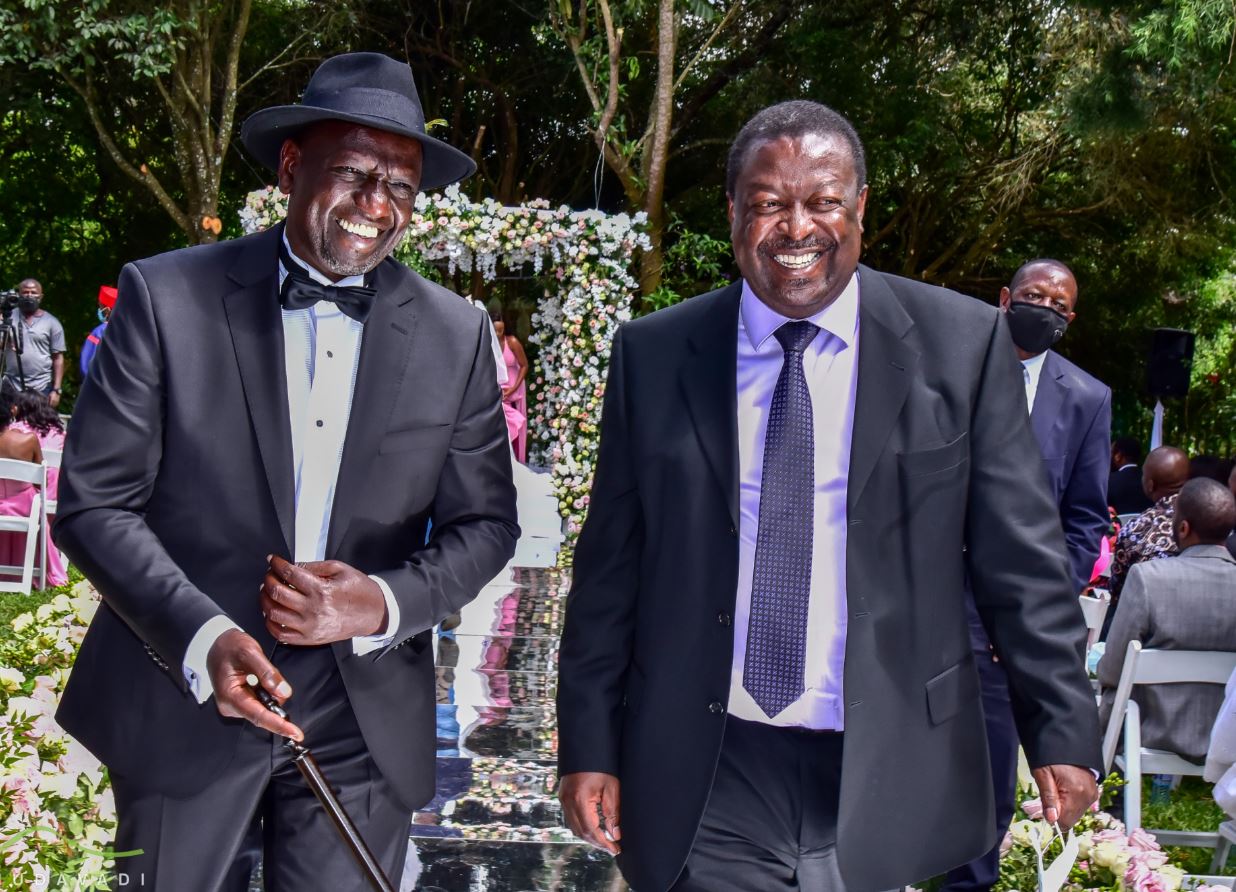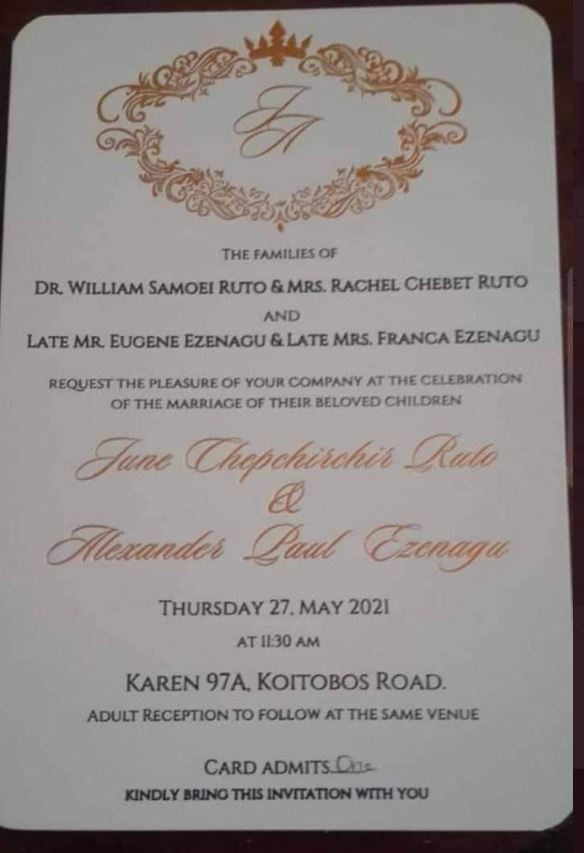source http://nairobiwire.com/2021/05/the-trending-pics-this-monday-11.html
Monday, May 31, 2021
The Trending Pics This Monday
source http://nairobiwire.com/2021/05/the-trending-pics-this-monday-11.html
Sunday, May 30, 2021
Kenyans in Agreement After Francis Atwoli Road Signpost is Pulled Down
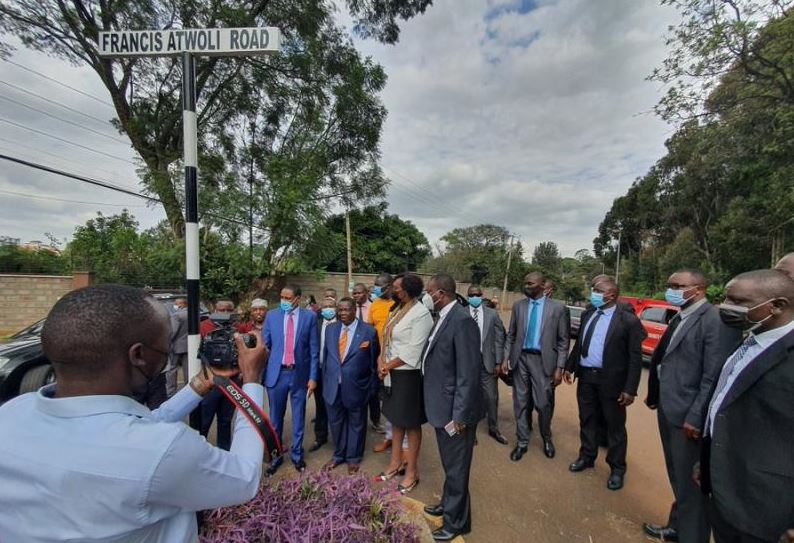
Kenyans first expressed their disapproval last Thursday when Nairobi Deputy Governor Anne Kananu renamed DikDik road in Kileleshwa, Nairobi after the outspoken trade unionist, albeit illegally since the renaming was not debated and approved by the assembly.
A few days after the unveiling of Francis Atwoli Road, unknown persons pulled down its signpost, and photos soon hit the internet, sparking another wave of dissenting voices against the renaming.
Atwoli on his part condemned the vandalism saying it amounted to impunity.
“In a country that believes in the rule of Law there are procedures and processes to be followed when unsatisfied,” he said in a tweet on Sunday.
Adding: “I am against anarchy. However, the police will look into that.”
On Twitter, however, Kenyans approved the alleged “anarchy” saying whoever pulled down the Francis Atwoli road signpost deserved State commendation.
Here are some of those reactions:
Still thinking about this road named after Francis Atwoli, then I read an article written by one Nyagwoka. It really pisses me off. Atwoli has contributed immensely to misfortunes facing Kenyans due to sycophancy. He can’t stand firm when his employers are struggling. Coward. pic.twitter.com/xatRvZEIoh
— Abuga Makori EGH, MBE (@abuga_makori) May 30, 2021
Whoever uprooted Francis Atwoli Rd Sign should send us the till number this Legend should be celebrated ALREADY PRONTO!!! .
— Maina wa Wangarĩ (@WangariPatrick) May 30, 2021
That someone thought naming a road after Francis Atwoli was a great idea still beats me. We don’t have roads named after our athletes but we thought he deserved a road. Eish, Kenya.
— Ominde Okoth (@IamOminde) May 30, 2021
#francisatwoli and the whole world is now happy pic.twitter.com/nEcIelWR2f
— Tatio Sanny (@saningotatio) May 30, 2021
Francis Atwoli deserves no recognition in Kenya to the extent of naming a road after him. What has he done apart from being Uhuru Kenyattas big mouth? There are kenyan heroes like Eliud kipchoge who put us in the world map. They deserve more.
— MK
(@manyara90) May 30, 2021
So sad that rough winds had to do this to the latest development projects in the City. pic.twitter.com/b5cgIVJVuu
— Rodgers Kipembe Mpuru (@RodgersKipembe) May 30, 2021
— Dr Boni Khalwale CBS, MBChB (@KBonimtetezi) May 30, 2021
Kenyans are awake, We should be having a Eliud Kipchoge road not the corrupt Francis Atwoli. A time is coming. pic.twitter.com/boE28pITNs
— Kipleting Kurgat (@kurgat_kiplee) May 30, 2021
Pulling down statutes and illegal road signs glorifying impunity is part and parcel of freedom of expression and right to demonstrate given under Articles 33 & 37 of The Constitution. Anne Kananu is in office illegally. Francis Atwoli represents what we should not remember. ^DoS https://t.co/iT5XbtvRKw pic.twitter.com/fhgBCkaH0e
— Nelson Havi (@NelsonHavi) May 30, 2021
What legacy does Francis Atwoli have to deserve a street named after him besides his foul mouth towards the DP?
pic.twitter.com/xEGX76vLRD
— Local Man
(@Kenny_kyp) May 30, 2021
Why would Francis Atwoli get a road named after him in Kileleshwa? What did he ever do to help those residents? Doesn’t it make sense for him to name a road named after him in Industrial Area? Does he already know that he has done zero for workers so they’d vandalize it daily?
— Nahashon Kimemia (@nahashon87) May 30, 2021
Francis Atwoli Road down even before google maps is updated.
Hatuezi kubali Jjinga. pic.twitter.com/tx5ADI8ran— Steve Oti (@NyakwarWangah) May 30, 2021
We need to introduce sensible laws in this country. You can’t name a road in a neighborhood without the permission of permanent residents living there. Residents of Kileleshwa should vote on whether they want the road named after Francis Atwoli esp those living along Dik Dik road
— Nahashon Kimemia (@nahashon87) May 30, 2021
Francis Atwoli road
name a pork butchery after him and leave our roads alone
pic.twitter.com/LkiM4e0Z2s
— KALENJIN FINEST
(@koech_chinese) May 30, 2021
After deeply searching for heroes & heroines in whose honour to name roads, someone could only find Francis Atwoli.
That’s how we institutionalise & celebrate mediocrity. pic.twitter.com/XXg0D9s8Y7— Tony Gitonga (@TonyMurega) May 30, 2021
Thank you nairobians you represented us well in Nairobi
Francis atwoli deserves nothing pic.twitter.com/XC3yFuScxB
— Shemeji (@itskaris254) May 30, 2021
Whoever uprooted Francis Atwoli pole must be congratulated by all citizens!
— Lawrence (@LawrenceBosire3) May 30, 2021
Let us end the debate on the name for that road. Retweet for Francis Atwoli, like for dic dic. pic.twitter.com/lMQf5idOco
— Wa Kimani (@kimanikenya) May 30, 2021
If you uprooted the Francis Atwoli road sign, inbox me your number. i have 5,000 for you. pic.twitter.com/757netQoGX
— Wa Kimani (@kimanikenya) May 30, 2021
In a country where we give presidential recognition for someone because they carried githeri during elections, Francis Atwoli rd ain’t a bad idea afterall..mediocrity recognises mediocrity. pic.twitter.com/jW8ab4LrZq
— Patrick (@kaleftiE) May 30, 2021
Dik dik (Madoqua spp) is a small antelope fast approaching endangered species conservation status. Our children need to be educated about it, yet the Nairobi County has the audacity to erase the antelope’s name and replace it with that of Francis Atwoli? This is mediocrity pic.twitter.com/No2x91DDxP
— Hussein Muslim, PhD (@Hus_Muslim) May 30, 2021
. Kenyans are brands of their own. So the Francis Atwoli’s comes down before I arrived at the scene to celebrate it’s removal? Please return Dik Dik signage as it was. The road leading to Atwoli’s house should be named after him, not a public one especially in Kileleshwa https://t.co/HPau44Apgy
— Nyaboke Mshamba (@Ellie_Ellie60) May 30, 2021
I support the uprooting of Francis Atwoli road sign. Atwoli is no legend neither can he be a role model in any society. We have people like Kipchoge Keino etc who deserve such honour. Nevertheless, any endeavour to rename roads must be acceptable by the sorrounding community.
— kenyan (@WilkinsChess) May 30, 2021
Better name it Embarambamba road than Francis Atwoli road
— Kiprono
(@its_biko) May 30, 2021
Was Public participation conducted in that area before renaming that road…If it goes through the court then it will be NULL AND VOID… pic.twitter.com/FAKCopvFWY
— kevin rotich (@mrkevinrotich16) May 30, 2021
Removing the road sign in honor of Mr. Francis Atwoli is a LEGITIMATE and LAWFUL resistance against oppression and impunity of my BELOVED JUBILEE Govt.
— Ahmednasir Abdullahi SC (@ahmednasirlaw) May 30, 2021
Francis Atwoli should take this opportunity to reflect on what he has done as COTU boss and as a person! The backlash that his road sign has received is enough food for thought that may lead into a serious case of constipation. Alaaa! pic.twitter.com/pgF2rGQnna
— Titus “Tito” Kuria (@PapitoTito) May 30, 2021
~What happened to that Francis Atwoli road should happen to all Kenyatta roads and avenues, Moi roads and Mama Ngina streets countrywide. Kenyans are tired of impunity and neocolonialism..
— RICHARD MAHAMOUD (@RichiMahamoud) May 30, 2021
Breaking : Francis Atwoli’s signpost that had earlier been uprooted by unknown people has been restored back. pic.twitter.com/7Lzx2EsHfW
— kipkoech mitei Rober (@MiteiRober) May 30, 2021
I love Kenya
Kuna ujinga hatutaki… Francis Atwoli Road ! pic.twitter.com/CaRwkNdsXD
— Moseax

(@MoseaxKenya) May 30, 2021
source http://nairobiwire.com/2021/05/kenyans-in-agreement-after-francis-atwoli-road-is-pulled-down.html
Q&A with Mohammed Badi, Nairobi Metropolitan Services (NMS) Director-General
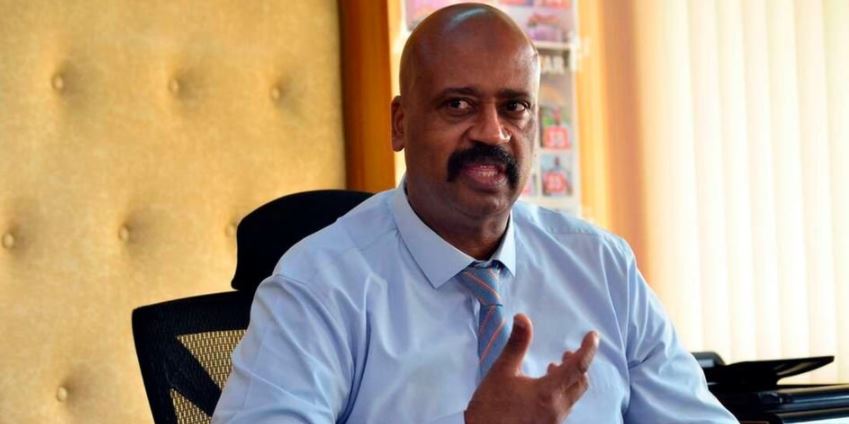
The Bus Rapid Transit (BRT) is such a brilliant idea. However, people have invested in buses and matatus yet the government also talks of acquiring its own buses. How do you want private investors to survive when government becomes their competitor? Dr Irungu Maina, Nairobi
BRT is being implemented by the Nairobi Metropolitan Area Transport Authority (NaMATA). The agency has been engaging matatu operators and they have developed a transition strategy that will ensure they are not adversely affected when BRT is implemented. Second, current operators will be involved in the management of the BRT system. It is important to note that BRT will only operate on five corridors while current PSV operators continue on many routes not covered. There is space for everybody.
All past City Hall administrators have blamed cartels for challenges facing Nairobi. Who are these cartels and how have you dealt with them?Komen Moris, Eldoret
A cartel is an illegal group of independent market participants who collude with each other to dominate and control the market for their self-interest with aim of evading revenue payment/breaking binding market laws and regulations.
In this case, it is true to say cartels are a great hindrance to service delivery in Nairobi. It is difficult to physically identify a cartel, the reason why we have strived to use technology to verify all that we are dealing with. We have overcome the cartel through the implementation of operating policies, legislations and regulations in the city.
How has your military background helped enhance service delivery? Komen Moris, Eldoret
The structure in the Kenya Defence Forces is team-work oriented. This is what we have taught all officers of NMS, leading to the realisation of the services we offer and projects we have implemented in the shortest time we have been in office. The disciplined forces are apolitical and this remains in our operations at NMS as we continue to serve the people of Nairobi.
When will Nairobi have well-demarcated bus stops that would improve road discipline for all? Sam Watene
NMS is in the process of developing better public transport facilities. Green Park Terminal is the first and many others will follow. These facilities are meant to create orderly use of the public transport system. NMS enforcement teams continue to address improper behaviour on the roads in collaboration with other security agencies, including the police.
There was a fire in Umoja recently, which razed people’s houses and other properties. It started from workshops built on public land allegedly grabbed by a former surveyor in the county government. Will NMS ever recover this land? Kiragu Kogie, Umoja Estate
The land was allocated by the defunct NCC. Currently, NMS is titling all public utility plots to protect them from land grabbing while ensuring conducive environment for their utilisation thus unlocking the county’s full economic potential.
What is NMS doing to ensure vehicles and motorbikes don’t ride on pedestrian walkways? Martin Muthuri, Nairobi
The enforcement department ensures regulations set on usage of non-motorised transport (NMT) areas are adhered to. This is through the establishment of the active Rapid Response Unit (RRU).
This team was specifically created to deal with such issues. In addition, the Security and Compliance Department is at the final stages of recruiting more enforcement officers to boost the workforce along all streets in the city.
Has NMS lost its steam. Some parts of Kenyatta Avenue are an eyesore – littered with garbage. Also, the streets are increasingly being overrun by hoodlums. Why? Nyagaka Amenya
NMS, through the Directorate of Environment, Water and Sanitation, has hired workers to clean the CBD. We have also been engaging NYS servicemen to ensure high levels of cleanliness within CBD and its environs. To supplement these ongoing efforts, an operation to improve the cleanliness and general aesthetics in CBD began on May 22, which involves sweeping, cleaning and ensuring all waste is collected for disposal. We have also been ensuring daily allocation of trucks within the CBD to cart away the waste. So far, several offenders of illegal dumping have been arrested. NMS is committed to ensuring that the city is clean and solid waste is collected on time to avert serious environmental pollution.
MCAs have alleged mismanagement of funds allocated to NMS. How true are these allegations?Davis Basweti Ombane, Juja
The MCAs understand the processes, from the time a budget is done to the time it is executed (expenditure incurred), and subsequently reporting (financial statements) and auditing (which is statutory) are executed. There is always fear among Kenyans that funds may be wasted or embezzled because of what they have experienced before and as we have proven, NMS is a new dawn. Further and in accordance with the provision of the Deed of Transfer and the accompanying addendum Article 7, the NCC Assembly and all its committees retain their constitutional and statutory oversight mandate over the performance of transferred functions. In the oversight mandate. The NCC Assembly or any of its committees has powers to summon any Executive member or chief officer of the NCCG responsible for any of the transferred functions to give any information required.
At the Machakos Country Bus terminus (next to Muthurwa), there are unruly individuals and gangs who rob and harass passengers. Can NMS eliminate them?Jonathan Karanja, North Kinangop
NMS works with National Police Service, and National Youth Service, among other security organs, to man the said areas to deal with the culprits. Several of them have been arrested and charged in court. At the same time, NMS has created a toll-free service line to enable residents report and seek help on any incidences.
As residents of Imara Daima, we have many challenges: pedestrian walkways have been grabbed, streetlights removed from the railway station and sewer systems are not working. Please help?Peter Kimwere, Imara Daima
Vandalism remains a great impediment to achievement of a world-class Nairobi. However, we have restored a high mast in the area using poles that cannot be used for scrap metal. Meanwhile, we have sub-county technical teams from lands, city planning, engineering, environment and enforcement officers where residents should report their grievances.
How can resident associations work with NMS?Alfred Owili, Nairobi
We have an MoU with Kenya Alliance of Resident Associations, which provides a framework for cooperation, and an avenue for engagement, as well as facilitate the implementation of the Nairobi City County Community and Neighbourhood Associations Engagement Act, 2016 limited to activities falling within the scope of the four transferred functions.
What measures have you put in place to professionalise your enforcement officers who brutalise small traders on Nairobi streets? Dan Murugu, Nakuru
Enforcement work should be done as stipulated in the Nairobi City Inspectorate Act. 2017. The enforcement unit has developed standard training curriculum that is customised towards professionalism. At the same time, the unit is developing stipulations for disciplinary action to be taken against officers who disobey the law.
Will the stretch from Fig Tree junction in Ngara to Gymkhana Goan ever be re-carpeted? Concerned resident along Ngara Road
NMS has embarked on massive re-carpeting of roads in CBD and entire Nairobi. This will soon extend to neighbouring locations including the stretch from Fig Tree to Gymkhana.
source http://nairobiwire.com/2021/05/qa-with-mohammed-badi-nairobi-metropolitan-services-nms-director-general.html
DP Ruto’s Anxiety about Marrying off June Ruto to a Nigerian

If you missed the photos, check them out here: All PHOTOS from DP Ruto Daughter’s Lavish Wedding
During the ceremony, DP Ruto admitted it was difficult to give away his daughter to a Nigerian man.
Ruto left guests in stitches as he expressed his supposed anxiety about June Ruto marrying a Nigerian man of Igbo ethnicity. He recounted the Kenyan government’s push and pull with controversial Nigerian businessman Anthony Chinedu, who was deported from Kenya in 2013.
“It is both an exciting and anxious moment. It is not easy as a parent to give away your daughter. It is much more difficult if you are giving away your daughter to Nigerians.
“It is much more difficult when you are giving your daughter to Ibos,” said Ruto amid laughter from the crowd.
DP Ruo continued: “Because when I first met Alex I told him a story of a guy called Chinedu who gave us a lot of trouble and I was told that man was an Igbo.
“So you can understand…this Chinedu fellow gave us so much trouble that we deported him to Nigeria and when we deported him he refused to get out of the aeroplane in Lagos for two days. Even after leaving him there, we found him in Kenya.”
Ruto gave the newlyweds his blessings and advised June Ruto to submit to her husband as she was now someone’s wife.
source http://nairobiwire.com/2021/05/dp-rutos-anxiety-about-marrying-off-june-ruto-to-a-nigerian.html
CRAZY: Funny Memes Going Viral on Social Media
Take a peep at our weekly compilation of the viral memes trending on the Kenyan interwebs.
source http://nairobiwire.com/2021/05/crazy-funny-memes-going-viral-on-social-media-3.html
My Story – I Rescue Mentally ill People from the Streets

She shares her story via Saturday Magazine.
*************************************
“There is nothing that disheartens me other than walking the town streets and meeting mentally ill people that are neglected. I feel joyful taking them off the streets, having them treated, and reintegrating them with their families. That has been my mission for the last ten years.
I was born 55 years ago in Nakuru and since the year 2000, I have been a passionate human rights defender, peacebuilder, and conflict management, reconciler. I’m also a Catholic Justice and Peace Commissioner involved in volunteering and offering charitable services to most vulnerable persons with special needs especially those with mental disorders and those affected with substance use.
The drive
What drove me to target this group of vulnerable people is because they are not aware of themselves yet they suffer a lot. They are human beings and deserve human dignity like the rest of us. A question that bothered me was what I had done differently to deserve sanity of mind than this suffering lot? The answer has always been nothing, and it’s only by grace and mercy of God.
I also discovered when these people are taken for treatment and rehabilitation; they regain their senses and live a normal life. And this serves as an inspiration.
It has not been easy dealing with people with mental issues as I’m all alone but my zeal and boldness have made me work with policemen, health officers, and well-wishers in this mission. I don’t approach any mentally unstable person I see walking the street without first checking where they reside –some have made dumpsites, trenches, or particular places like backstreets their habitats. I then get the police to transport and check them into the hospital for treatment.
Get them back
Treatment involves admission, and after discharge, I interrogate them to know their relatives and the process of reintegrating them with their families or relatives. In case they may not be accepted back by their families or are unsuccessful in going back, I look for well-wishers who are willing to support them while I provide them basic needs—food, clothing, and shelter. In some situations, I accommodate some, and I’m currently about ten.
It is not always smooth going as there are lots of challenges as well as joys. Sometimes I may not get the assistance I’m looking for when I have a case that I need to take to the hospital and I’m forced to look for alternatives as a solution.
Take for example when I need the police help to handle a mental case. Some of the mentally ill are violent. You can’t dialogue with a person who may not understand even their surroundings. When the police fail to show up to help capture or render the needed assistance like transport, I have to hire young men to do the ‘arresting’ and look for private means to the hospital. And at the hospital, I may not get a waiver even under the neediest of situations. No waiver means no admission, only a jab, and the patient returns to the streets. This is disheartening as they do not heal. It is costly treating mental illness and this could be a reason many don’t care about their mentally sick family members and abandon them.
Success missions
Success stories abound despite the challenges. Examples are where these mental cases respond to treatments, fully recover, and start relying on themselves. A recent example is where a mentally challenged male was admitted to Gilgil Mathari Mental Hospital and is now able to earn a living for himself. I can say assisting an insane person to get to his normal life is like coming back to life.
Some people usually have misconceptions that mental issues are a result of dark forces like witchcraft, curses, genetics, and drug abuse. This is usually not the case. A mental disorder is an illness and not necessarily a drug and substance-related issue as many erroneously think.
There are several underlying factors leading to mental situations like depression, poverty, loss of a parent or relative, untreated early cerebral diseases, untreated venereal and dipolar conditions, abandonment, conflict in families to name just a few.
The stigmatisation of mentally challenged people or families with mentally ill members is what makes it difficult to address the issue. No wonder even after successful treatment, some families refuse to accept their kin back because they are embarrassed to be associated with the person. It’s no wonder that mental facilities are littered with patients that have been abandoned for a long time.
For those affected by drugs and substance abuse, I refer them to rehabilitation centers and many have made recoveries and can lead decent lives.
I cannot rest easy until the streets are empty of mentally ill people. While this would be an accomplishment, I cannot rest easy as there are many people silently undergoing mental issues and hardly seeking treatment. The number is on the rise. The mentally sick are not only in the streets but within us as well.”
source http://nairobiwire.com/2021/05/my-story-i-rescue-mentally-ill-people-from-the-streets.html
Hilarious Posts by Kenyans on Social Media For Your Monday Blues
Scroll through for your weekly dosage of random and humorous posts going viral on the interwebs.
source http://nairobiwire.com/2021/05/hilarious-posts-by-kenyans-on-social-media-for-your-monday-blues-47.html
Lessons Learned after I Lost Sh2 million Trading Forex
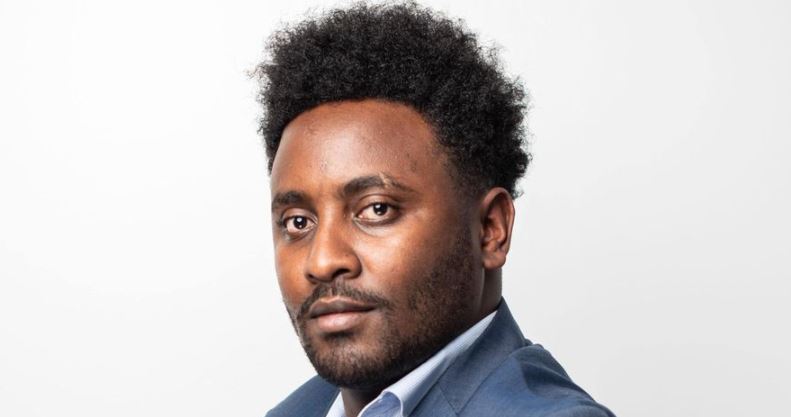
He shares some valuable lessons about fx trading, money, and entrepreneurship that he has picked up along the way.
Learning to manage my portfolio and earning profits by trading currencies and stocks online is my biggest milestone so far. It took me a long time to learn various strategies from the internet without a professional to guide me. In my early trading years (2013-2017), I would read books, tutorials, attend live webinars, listen to podcasts, and practice the information on my live account. Sometimes I would make profits, sometimes I would lose everything in my account. I never gave up. Eventually, I learned risk management and improved on my trading discipline. This is what transitioned me from a noob to the trader I am today. In my early trading days, I would depend on my forex trading account to pay bills and that did not go very well. In a bad trading month, I would find myself paying my bills from my invested capital.
I used to invest my surplus income after spending. Let’s say your monthly income is Sh70,000. Spending this money on your bills and then investing the remainder is not right. The best way includes determining the investment amount first, setting it aside, and then surviving on the balance. Before I realised this, my surplus income, the one destined for investment, would be sometimes negative.
I once lost Sh2 million trading forex. I attribute the loss to my lack of discipline in my early trading years. I had built the portfolio up from Sh300,000 and was very excited to have reached Sh2 million. This made me overconfident, and I began taking bigger trades with larger risk exposure. I learned that your own emotions and expectations can be your enemy in trading.
I still have a challenge saving money. This is because I tend to view every single shilling lying in my bank account as investable. I feel like this money should be making me more money. Sometimes I fall into liquidity traps when I have used my savings to buy a stock and then a cash emergency forces me to get a small loan from a bank or mobile app to survive. Step by step, I am learning to build an emergency fund.
Investing early is like making your own gold in the backyard. New technologies are coming up every day that are changing the way we live and interact with each other. People who invest in these technologies are most probably going to be the millionaires of the future. Buying shares of these industry-changing leaders may create enormous wealth in the next 10-20 years. Don’t invest in ‘One day’; make it ‘Day one’ instead.
I have done both business and employment. Entrepreneurship is marketed as the best since there is a huge potential for income growth while job salaries tend to be viewed as stagnant. However, I tend to view employment as the base foundation where most entrepreneurs learn and build themselves before venturing out. If you have the funds and the entrepreneurial skills, go for it. It’s okay to get employed to build capital.
Courtesy/ Saturday Magazine
source http://nairobiwire.com/2021/05/lessons-learned-after-i-lost-sh2-million-trading-forex.html
My Agribusiness Hustle – Sweet Potatoes Gave me Sweet Profits After Losing all my Savings
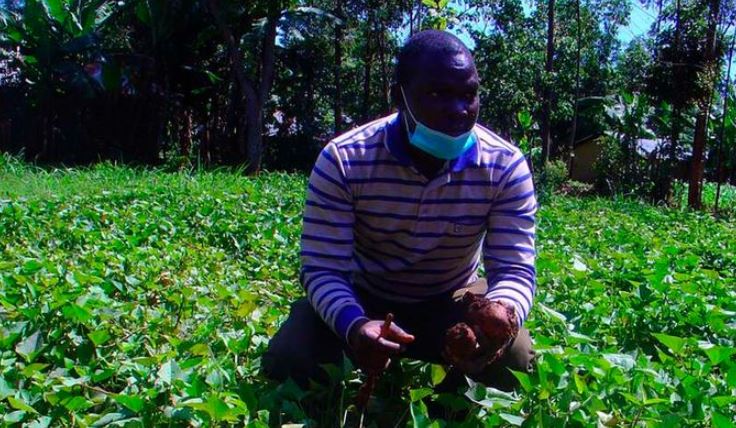
After several setbacks that saw him lose his savings, Akali found his sweet spot in orange-fleshed sweet potatoes. He has since been appointed a board member of the Sweet Potato Skill Sector Advisory Committee (SSAC).
When did your love for farming start?
I started farming in 2007 when I completed secondary school. I remember planting cabbages on the family’s half-acre farm and they did so well, but I later got disappointed when I could not sell them due to lack of market. However, this did not discourage me, I still studied horticulture at the Jomo Kenyatta University of Agriculture and Technology. After completing my education, I worked at a flower farm and joined another horticulture farm before quitting to farm.
How was the transition to farming?
A little bit rough. I knew farming was not a walk in the park but I was brave enough to pursue my goal. Besides losing cabbages, I had also tried my hand in sweet potatoes while still employed and failed terribly. I had requisite experience, so I believed. I invested in two tomato greenhouses in Kakamega in 2017, ploughing Sh400,000 into the business but diseases and bad weather conspired against me. Strong winds blew away the structure. I used to wake up at 3am and ask God tough questions. But I did not give up. Later, I moved into sweet potatoes under the name Gapephi Farm Ventures.
Why sweet potatoes?
Sweet potato is a climate-resilient crop. It requires less labor, unlike other crops. I started farming it when I had lost all my savings and it gave me hope in the industry. I am now doing other side things like greenhouse fabrication but all that is from the sweet potato business. I farm the orange-fleshed variety.
Where do you get seedlings?
GIZ, the German development organisation, which partners with Kalro-Kakamega, played a big role in me getting the first quality planting materials. Today, we source them from Kenya Plant Health Inspectorate Service (Kephis) and other certified nurseries.
How does one plant and manage sweet potatoes, from seedlings to harvest?
You have to select a field that is well-drained. Deep cultivation to break the hardpan is necessary to avoid oblong tubers. Before doing anything, one has to decide on what the target market wants. We have so many varieties of sweet potato grow but broadly, you either are growing the processing variety or for local consumption ones.
Processing varieties include Kabonde, Vitaa, Kenspot 3-5, American or Caroti and Irene. Local varieties include Haraka, Bungoma, Kenspot 1, Chebolol etc. I am mentioning names because many farmers don’t know what to go for in the industry. Supermarkets want smooth-shaped varieties like Irene and American. Just before farmers decide to plant, they must have knowledge of varieties and where to sell them.
After deciding on variety, raise beds 30cm high and 75cm to 90cm wide. Plant spacing is 30cm from plant to another and vines are planted in a slanting position. At least three nodes inside the soil and one node out but new technologies like rooted seedlings is still being studied.
Normally they require moderate nutrient but good amounts of potassium and muriate of potash are good.
In most cases, we advise farmers to rotate heavy feeder crops with sweet potato so that it can utilise the remaining nutrients. With the coming of the export market, soil testing becomes a critical component because we need optimal production. Weeding is done within the first month. By second month, the tubers start forming and very minimal activity should be happening around the root zone.
What is your role as a board member of SSAC?
To participate in the development and review process of the sweet potato value chain curriculum.
You recently signed a sweet potato export contract, tell us about it…
I signed a sweet potato contract to export to European Union, what actualised my dream in farming. My plan is to get support and open a processing facility in Kakamega next year to enable us to export processed orange-fleshed tubers to Europe. I recently stopped doing actual production to focus on post-harvest handling and marketing.
What big lessons have your learnt?
Failure in something should be your turning point. Training is also key, I was trained in the GIZ green innovation programme on how to produce clean sweet potato planting materials and commercial cultivation of the crop. Further, I have learnt that farming is for all, but only agriprenuers make money. There are three rules to follow when joining the industry as a novice. First is have a mentor, be ready to save and face the industry.
Source: Seeds of Gold
source http://nairobiwire.com/2021/05/my-agribusiness-hustle-sweet-potatoes-gave-me-sweet-profits-after-losing-all-my-savings.html
Career Path with Licensed Architect who Quit Employment to Start Firm

Langat, 34, is the director of Studio Culture Limited, an architectural consultancy firm based in Nairobi. He shares his career path with the Sunday Nation.
Tell us about your childhood and Family Life
I was born and raised in a typically rural village of Morit, Bomet County. I am the Fifth Born in a family of Nine. My parents are retired teachers and understood the value of a proper foundation for good quality education. This probably explains why they soon sent all of us to well-performing boarding schools, away from our village, for our primary school education.
I watched with a lot of admiration as my elder brothers and sisters excelled in the National examinations and securing admission to the then ‘prestigious’ courses in universities, to the point of becoming some sort of ‘celebrities’. I always knew that I had to double my efforts if at all I intended to match or even exceed their exploits.
The culture of expectation of excellence within our family taught me the value of hard work. These moments in my childhood might seem small but they have made hard work and discipline a significant part of who I am today.
Educational Background
I started school in Morit Primary school (Nursery to Class Four) between 1991 to 1993. I then transferred to Kericho Boys Boarding Primary School for the next two years. In 1997, I again transferred to Tengecha Boys Boarding Primary School still in Kericho County where I eventually sat for my Kenya Certificate of Primary Education (KCPE) in the year 1999.
I proceeded to Kapsabet Boys’ High School in Nandi County in 2000. In 2003, I sat for my Kenya Certificate of Secondary Education (KCSE) and attained a good enough grade to earn me a place in the Department of Architecture at the University of Nairobi from 2005 and graduated with a Bachelor of Architecture Degree in 2011. I later pursued a Masters in Construction Management in the same university eventually graduating in the year 2016.
Career journey
After completing my B.Arch. Degree, I secured my first employment as a graduate architect with a private architectural consultancy firm, then located in Parklands and run by my former professor.
Soon after, I moved to Kigali, Rwanda to work for one of the top architectural firms; GMK Architecture SARL, having emerged a successful candidate in a competitive recruitment process.
One year later, I relocated to Nairobi having got admission to pursue my postgraduate studies. While in Nairobi, I also got employed by the Mombasa Road Based Architectural Firm, Maestro Architects Limited, as an assistant Architect.
During my stint at Maestro Architects Limited, and under the guidance of Arch Charles Ogeto and Arch Kimathi Itaru, I sat and passed my professional examination and completed my postgraduate studies culminating in my promotion to the position of Architect.
In the year 2016, I made a decision to quit employment to establish my own practice, Studio Culture Limited. With our office based in Nairobi, we have since been commissioned to design and oversee several building projects all over the country ranging from residential, commercial, and factories. We look into diversifying our practice into Design and Build outfit with our eyes all set to establish our regional branch in Kericho Town by the end of this year.
What do you remember most about your career journey
Growing up in the Village, and having gone to primary and High school in Rural Counties, I always knew that the world was way bigger than my village! So when the opportunity to work in a big city out of Kenya (Kigali Rwanda) presented itself, I quickly jumped into it.
I knew in my heart that foreign travel for a young architect was vital for maintaining clarity and openness to design challenges. I believe it introduces an architect to solutions that navigate beyond local building practices, material choices, approach to culture, climate, and basic construction methods.
Besides, working alongside Architects and Engineers from different nationalities (Democratic Republic of Congo, Ireland, Mali, Rwanda, Uganda, and the United Kingdom) helped me hone my creative and innovative skills, due to the diverse workplace. The office was simply a melting pot of fresh new ideas!
How have you progressed over the years career-wise?
Throughout my professional career, I have always considered my main goal to be providing cutting-edge design solutions, which are always in harmony with the environment while looking to encourage social and economic growth of my country.
In the past, I would not always assert myself or aggressively pursue bold ideas in the building industry. But having honed my technical and managerial skills during my days in employment, I quickly moved on to establish my own practice, and in only five years, the firm has grown in leaps and bounds.
We have been able to effectively oversee building projects in Kenya well over Sh500 million in value year in year out. We have also created employment directly and indirectly for hundreds of Kenyans as well as internship opportunities to architecture students from our local institutions of higher learning. I now realise how these skills can not only contribute to the advancement of my career goals but contribute to the overall development of our country.
What are some of the key drivers of your growth? Lessons learnt and failures?
Relationship with clients – While good relationships lie at the heart of the success of all professional and personal ventures, architecture and construction industry is one that is fundamentally built on strong relationships. Accordingly, fostering these architect-client relationships has always been our priority as it has always led to business growth and success through consistent supply of business in the form of repeat clients and referrals.
Social Media Marketing – Facebook, Twitter, Linked in and other social media channels have been a powerful marketing tool that has ensured that apart from increased visibility in a highly competitive industry, we have been able to have a wider reach across the globe to current and prospective clients. It has also ensured quick and effective feedback to current and prospective clients. Being active on Facebook especially has not only increased loyalty but also generated new business leads.
Technology – Adoption of advanced technology such as Building Information Technology (BIM) to strengthen and support architectural design and management has revolutionised architecture and construction management of the projects I’ve been involved in by streamlining collaborations, reducing project costs, enhancing communication.
Teamwork – I’ve always learnt that getting a good team has been a key driver in the growth of any business by ensuring a synergistic way of working with each team member committed and working towards a shared goal. Through teamwork, we have been able to maximize the individual strengths of team members to bring out their best.
Who would you credit for your career growth and how did they influence your trajectory?
My former boss and mentor while working at Maestro Architects Limited, Architect Charles Ogeto has been useful in my career growth. Having worked closely with Him for a good number of years, I benefited from his immense experience in the industry.
He knew exactly the kind of challenges I faced in the course of my professional work and could prescribe solutions within the snap of a finger. He made hard decisions himself and I witnessed the impact of those decisions.
Many times, I use his experience to put my situation in perspective. Besides, he is such a fine Architect and I can always go back to Him for free advice!
Key decisions you might have taken along your career?
The gamble of quitting a well-paying job to be my own boss seemed to have paid off! It is a huge risk though.
What is your current role and scope?
I am currently an architect and recently diversified into construction and project management.
What would you tell your younger self?
Start building career skills as early as possible.
What would you advise the youth in Kenya and Africa Today?
Now that the global pandemic is with us, we don’t know what the future holds. But we do know that we live in changing, turbulent times. This means that your job description could be very different – or even irrelevant – in the years to come!
If your skillset falls ‘behind times’, you may struggle to find work. The youth of Kenya should also develop their skills, be tech-savvy, think globally, and build solid professional networks.
They should also keep clear and open career paths, build their resilience, and within organisations pursue roles that invest in people’s development. To the young architects, you are as good as your dreams.
Your future plans?
Start apprenticeship and mentorship programs.
source http://nairobiwire.com/2021/05/career-path-with-licensed-architect-who-quit-employment-to-start-firm.html
Uhuru Kenyatta Eulogises Kalembe Ndile as a “witty and lively politician”

In his message of comfort, the President described the late Kalembe, 57, as a witty, determined and practical politician whose rise in life was as a result of sheer hard work.
“It is unfortunate that death has taken from us the Hon Kalembe Ndile in his prime. He was a lively politician who loved and worked with everyone, and always held the interests of the country at heart,” the President said.
The Head of State recalled his interactions with the witty politician over the years saying, the late Kalembe excelled as a fighter for human rights especially the right to access land.
“With the death of Mheshimiwa Kalembe, our country has lost an astute fighter for human rights. We all remember how passionately he fought for the plight of squatters in the country,” the President eulogised the former MP.
The President wished the family of the departed politician God’s grace and comfort as they come to terms with his demise.
source http://nairobiwire.com/2021/05/uhuru-kenyatta-eulogises-kalembe-ndile-as-a-witty-and-lively-politician.html
Friday, May 28, 2021
All PHOTOS from DP Ruto Daughter’s Lavish Wedding
Deputy President William Ruto’s daughter on Thursday said ‘I do’ to his Nigerian man.
The soft spoken June Ruto married Alexander Ezenagu, in an invite only ceremony held at the DP’s private residence in Karen.
Very few close friends were invited, with the most high profile political guest being former Deputy Prime Minister Musalia Mudavadi. Most tangatanga MPs and Senators were also present.
It was indeed a busy day for the DP, with his morning taken up by the national prayer breakfast, before quickly retreating to his home to attend his daughter’s nuptial.
The Deputy President wore a fedora hat to accompany his black suit, while Mama Ruto wore a long rose rose dress with lots of details.
On her part, the bride wore a white strapless gown with a cathedral veil.
Earlier this month, the groom’s family had visited Ruto’s residence for dowry negotiations.
Ezenagu is a graduate of the University of Cambridge in the United Kingdom, and is currently an assistant Law Professor at the Hamad Bin Khalifa University in Qatar.
Here are some photos from the ceremony that was conspicuously missed by President Uhuru Kenyatta.
source http://nairobiwire.com/2021/05/all-photos-from-dp-ruto-daughters-lavish-wedding.html















